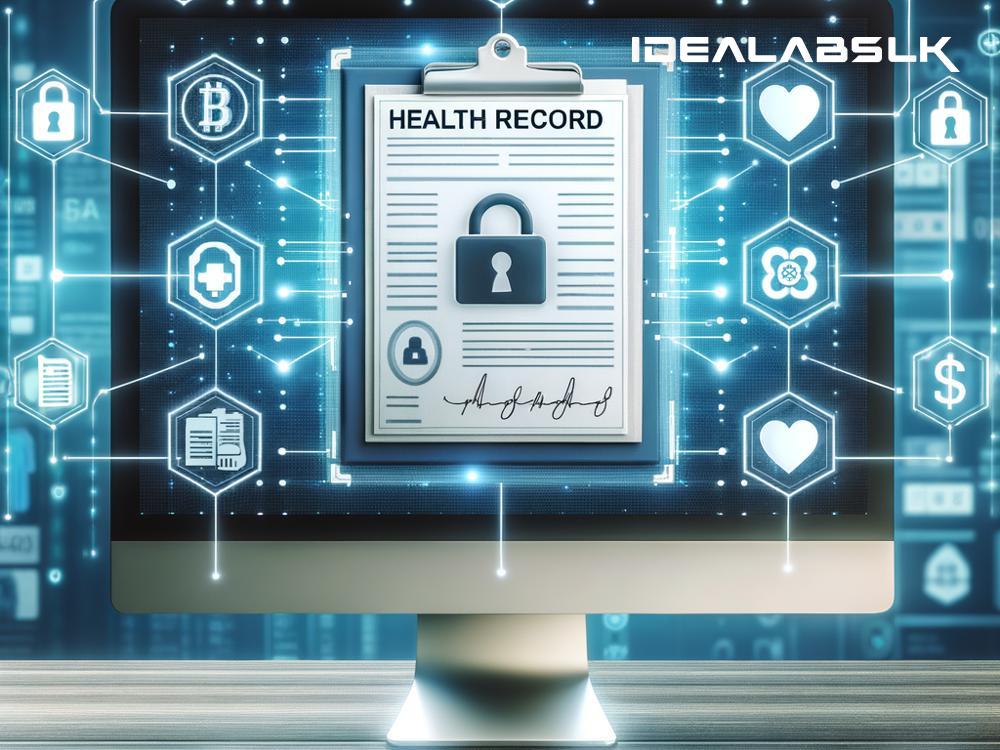How Blockchain is Revolutionizing Health Insurance Records
In today's fast-paced world, we continuously search for methods to simplify the complex web of our daily activities, particularly when it comes to managing our health and financial matters. One of the groundbreaking technologies gradually transforming this landscape is blockchain. Now, let's demystify how blockchain is reinventing the way we manage and access health insurance records.
Understanding Blockchain in a Nutshell
Imagine a gigantic ledger or record book, but instead of being stored in a single location like a bank or a government office, copies of this ledger exist simultaneously on thousands of computers around the world. This ledger is public, so anyone can see it, but it's also incredibly secure because changing any piece of information would require altering every single copy of the ledger at the exact same time, an almost impossible feat.
This is the essence of blockchain technology. Originally devised for digital currencies like Bitcoin, its potential reaches far beyond, offering a new realm of possibilities for securely and efficiently managing data, including health insurance records.
Transforming Health Insurance Records
Traditionally, health insurance records have been a complex web of paperwork and bureaucracy. From patients and healthcare providers to insurance companies, everyone has their own set of records, leading to inefficiencies, increased risks of errors, and even fraud. However, blockchain introduces a game-changing solution.
1. Enhanced Security and Privacy
Blockchain's inherent security features—like its decentralized nature and cryptographic hashing—ensure that health insurance records are nearly invulnerable to hacking. This means your personal health information is safer than ever before. Additionally, blockchain offers the ability to control who has access to your records through digital keys, vastly improving privacy over traditional systems.
2. Simplified and Speedy Access
With blockchain, all your health insurance records could be stored in one place. Whether you're seeing a specialist, visiting a new dentist, or checking into a hospital, your healthcare provider can instantly access your complete health insurance information with your permission. This can significantly expedite the verification process, reducing wait times, and allowing for faster, more coordinated care.
3. Reduced Fraud and Errors
One of the most significant advantages of blockchain is its ability to almost eliminate fraud and errors. Since each transaction or modification to the record is transparent and requires consensus across the network, it's exceedingly difficult for fraudulent activities to take place. This not only ensures the integrity of health insurance records but also has the potential to reduce overall healthcare costs by cutting down on fraudulent claims.
4. Seamless Claims Processing
Blockchain can streamline the cumbersome process of health insurance claims processing. With smart contracts—self-executing contracts with the terms of the agreement directly written into code—it's possible to automate many steps of the claims process. This automation could lead to quicker approval times, less manual intervention, and a more pleasant experience for both patients and insurers.
Facing the Challenge
While the benefits of blockchain in managing health insurance records are vast, the road ahead is not without its challenges. Integration with existing systems, ensuring regulatory compliance, and achieving widespread adoption across the healthcare and insurance industries are some hurdles that need to be overcome. However, given the promising benefits, the effort to tackle these challenges seems well worth it.
The Future is Now
We are just beginning to scratch the surface of what's possible with blockchain technology in the healthcare space. As we move forward, we can anticipate more innovative uses that will continue to transform the way we access, manage, and protect our health insurance records.
Blockchain offers a glimpse into a future where managing health insurance records is no longer a dreaded task but a seamless, secure, and efficient process. It's a future that promises not just better health data management but also a more transparent and patient-centric healthcare system.
In conclusion, as blockchain technology matures and gains wider acceptance, it could revolutionize not only the healthcare industry but how we manage personal data across the board. It's an exciting time, and one thing is sure: the blockchain revolution in health insurance records management has just begun, and its full potential is yet to be unleashed.

